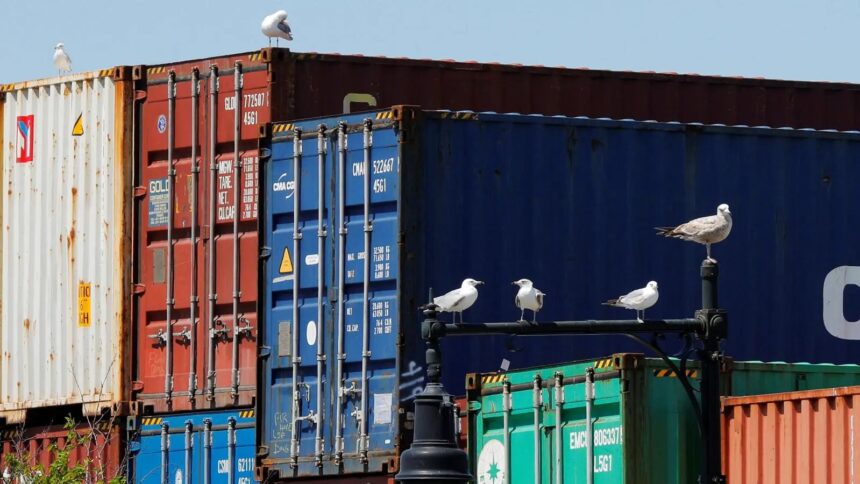INDIA’S GOODS exports worth at least $775 million to the UK continue to face the risk of higher duties under its Carbon Border Adjustment Mechanism (CBAM) despite the conclusion of a Free Trade Agreement (FTA) earlier this month, a UK official said Tuesday.
A policy that was first proposed by the European Union and later by the UK, CBAM seeks to put a tariff of up to 35 per cent on carbon intensive products such as iron, steel and aluminium.
During negotiations, India had sought to secure a carve-out for MSMEs from the CBAM policy after exporters told the Ministry of Commerce and Industry they were not in a position to meet its extensive data requirements. Exporters had also raised concerns that complying with carbon tax could compromise confidential trade data of manufacturers.
Confirming that CBAM was not part of the India–UK FTA, the UK official said these types of mechanisms usually don’t form part of the deal.
Arguing that CBAM is not WTO-compliant, India had also proposed a ‘rebalancing mechanism’ which would require UK to compensate Indian industries for losses incurred due to the policy.
Trade experts said under the trade deal, the UK has agreed to allow 99 per cent of India’s exports to enter duty-free. This concession could, however, be undermined as select Indian goods may face tariffs of 20–35 per cent, equivalent to the CBAM charges.
Earlier this month, an Indian government official said India reserves the right to retaliate against losses caused by CBAM. The official said if India were to tax these products domestically, the industry could avoid paying the UK tax, and the revenue could support India’s own sustainability initiatives.
The carbon tax negotiations are significant, as the UK’s CBAM — set to take effect in 2027 — will initially target carbon-intensive products such as iron, steel, aluminium, fertilisers, hydrogen, ceramics, glass and cement, with scope to expand the list in future. According to the think tank Global Trade Research Initiative (GTRI), the carbon tax could impact $775 million worth of Indian exports. “By not securing a carve-out or exemption clause on CBAM, India lost a vital opportunity to protect its carbon-intensive exports. From January 2027, the UK can impose carbon taxes on Indian steel and aluminium, even as we grant UK goods duty-free access. That’s a serious asymmetry. Expect the same treatment in India’s FTA with the EU,” said Ajay Srivastava, founder of GTRI.
As no concession was secured under the FTA, India could challenge the regulation at the WTO on the grounds that CBAM violates special and differential treatment (SDT) provisions, which advocate longer implementation periods for developing countries to protect their trade interests.
However, trade law experts warn that the CBAM regulations in both UK and EU could be in effect by the time the WTO rules on the matter, given that WTO’s Dispute Settlement Body (DSB) is not functional.
They also said there is limited likelihood of an adverse ruling on CBAM at the WTO, as the EU remains one of the strongest supporters of the institution. A more probable outcome would be adjustments to the regulation rather than its complete withdrawal.
The European Union on Tuesday refused to consult with Russia on concerns relating to carbon tax. This refusal could render Russia’s dispute ineffective due to the non-functional DSB.
In its request for consultation, Russia argued at the WTO that CBAM was a highly trade-restrictive and discriminatory mechanism established by the EU under the guise of climate policy.
“As the EU itself puts it, ‘the introduction of a CBAM leads to a reduction in imports in the EU27’, while the CBAM is used as an instrument to boost competitiveness and unlock additional investment capacity in the EU,” Russia said in its submission.
Refusing the consultation, the EU stated it would “not consult with the Russian Federation on the matter at hand as long as the Russian Federation continues to violate international law through its war of aggression against Ukraine”.







